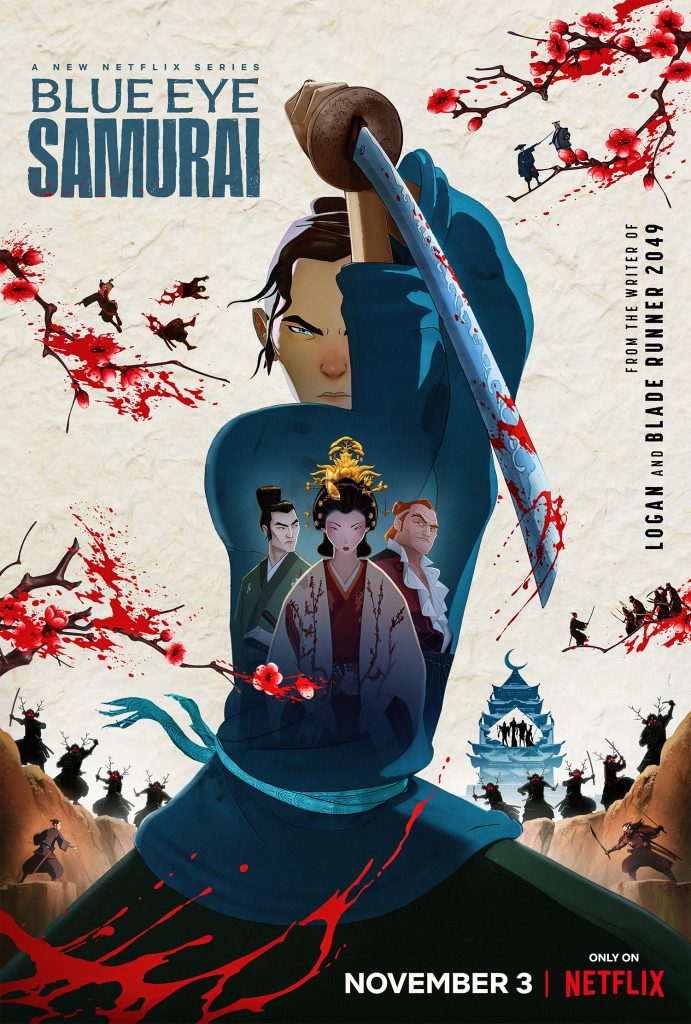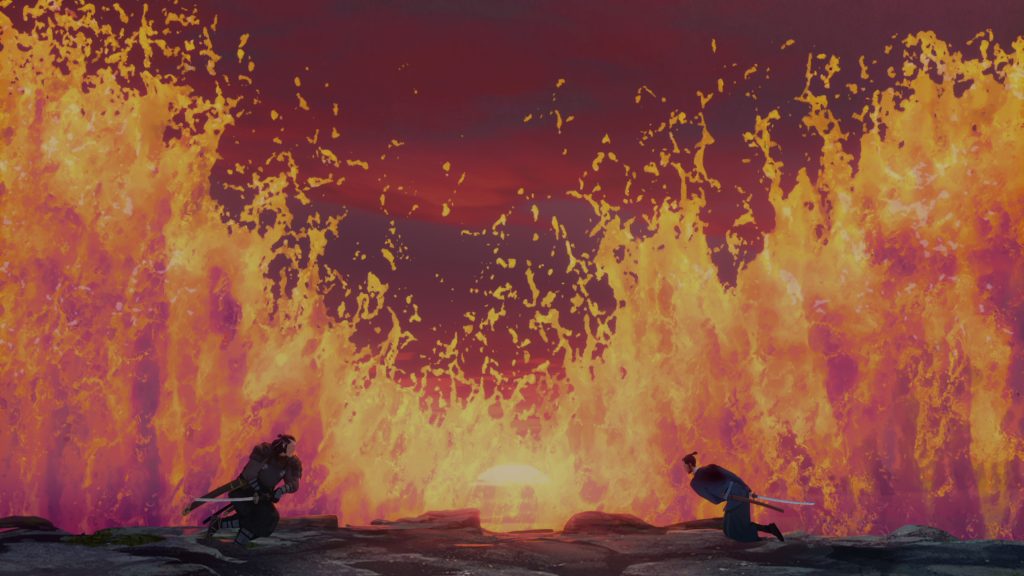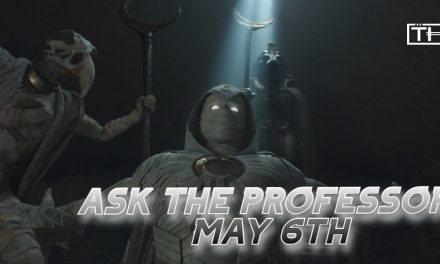Even at first glance, Netflix‘s Blue Eye Samurai looks like an interesting concept for a series. It’s essentially a revenge story featuring a mixed-race female samurai in Japan’s Edo period. Few action stories like these star a female main character, so this by itself is a rather refreshing take on the genre. Then I actually watched it, and it’s even better than I’d imagined. With a perfect blend of stylish action, hilarious comedy, and dramatic romances; this Netflix series is the perfect example of a ramen Western and chanbara simultaneously. If you have any interest at all in Westerns or historical dramas in general, then this is the series for you.
Blue Eye Samurai: Details

Blue Eye Samurai is an upcoming Canadian-American adult animated ramen Western/chanbara series from Netflix. Netflix Animation, Blue Spirit, J.A. Green Construction Corporation, and 3 Arts Entertainment are the production companies behind this series.
Michael Green (Logan, Alien: Covenant, Blade Runner: 2049) and Amber Noizumi are the creators of Blue Eye Samurai, who are actually a husband and wife team. Jane Wu is the director of this series, with Michael Green, Amber Noizumi, and Erwin Stoff as executive producers. Jane Wu is also a producer alongside Haven Alexander.
Voice Cast
Blue Eye Samurai features the voice of Maya Erskine as Mizu. Other important voice roles include Masi Oka as Ringo, Brenda Song as Princess Akemi, Darren Barnet as Taigen, Cary-Hiroyuki Tagawa as Swordfather, and Kenneth Branagh as Abijah Fowler.
When and Where to Watch
Blue Eye Samurai will make its debut on November 3, 2023. It will run for a grand total of 8 episodes, each lasting from 45 minutes to an hour. You can watch this series only on Netflix.
Blue Eye Samurai: Synopsis
Normally, this would be the point where I’d give you all a spoiler-filled plot summary of Blue Eye Samurai. However, this is the pre-release version of my usual reviews. Thus, you will all get the official synopsis from Netflix instead. You can check out that synopsis below:
This provocative and visually stunning cinematic series immerses the viewer in a world of vivid adult animation with a live-action edge. Set in Edo-period Japan, BLUE EYE SAMURAI follows Mizu (voiced by Maya Erskine), a mixed-race master of the sword who lives a life in disguise seeking the deliverance of revenge. TV-MA.
BLUE EYE SAMURAI is created by Amber Noizumi and Michael Green, who also serve as executive producers and writers. Erwin Stoff is executive producer. Jane Wu is supervising director and producer. Blue Spirit is the animation studio. Voice cast includes Maya Erskine (Mizu), George Takei (Seki), Masi Oka (Ringo), Cary-Hiroyuki Tagawa (The Swordmaker), Brenda Song (Akemi), Darren Barnet (Taigen), Randall Park (Heiji Shindo), and Kenneth Branagh (Abijah Fowler). Supporting voice cast includes Stephanie Hsu (Ise), Ming-Na Wen (Madame Kaji), Harry Shum Jr. (Takayoshi) and Mark Dacascos (Chiaki), among others.
Blue Eye Samurai: The Good

Oh wow, where to even begin? Well first, let’s start listing the good things about Blue Eye Samurai by its most notable feature: its action. Its very, very, VERY blood and gore-filled action. This is the most blood and body parts I’ve seen flying around since playing a Gears of War game. However, the violence in this series is a lot more artfully depicted than in any Gears of War game. Indeed, I would say that it’s almost on the art level of a Sui Ishida (Tokyo Ghoul, Choujin X) manga. Considering just how artsy Ishida-sensei’s work is when it comes to violence, this is a major compliment from me.
It’s not just the action though. Blue Eye Samurai features a lot more than that. It’s got drama, romance, and even a bit of comedy and fluff to keep the story from getting too dark. All of that is intricately woven into the revenge story Mizu is embarking on, like threads woven into a tapestry. This series is essentially the perfect dark chocolate in terms of story. Just dark enough to add complexity to it, while being just sweet enough to balance out the bitterness.
The genre blend of this series is part of that complexity. This series is essentially a chanbara work: a piece of samurai cinema. It’s got a lot of homages to those black and white samurai films like Akira Kurosawa’s masterpieces. Not only that, but this series is also a brilliant work of ramen Western. When Mizu walks into a ramen place, it’s not hard to see the resemblance to Clint Eastwood walking into a saloon.
Speaking of Mizu, she’s the final component of what makes Blue Eye Samurai great. Not many stories in either chanbara or Western stars a female main character period. Not only that, but she’s got both an intricate backstory and a lot of potential to grow, on top of having just enough likable qualities to keep her heroic. She’s a worthy Western hero, and it shows.
Blue Eye Samurai: The Bad

To be honest, if you’re a little on the squeamish side, then Blue Eye Samurai isn’t the series for you. It’s got blood and gore enough to fill a sea, and it’s also got nudity and graphic sexual content to boot. If you don’t mind any of that though, then you’re good. I can’t recommend this series enough.

![Netflix’s ‘Blue Eye Samurai’: The Perfect Ramen Western [Review]](https://thathashtagshow.com/wp-content/uploads/2023/11/project_20231103_1001597-01-1200x640.png)

![Bros – An Unapologetically Gay Rom-Com That Shines! [REVIEW]](https://thathashtagshow.com/wp-content/uploads/2022/09/project_20220923_2349094-01-440x264.png)


